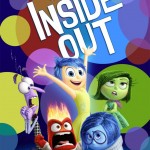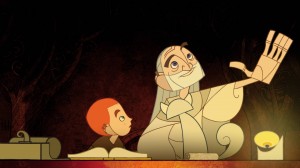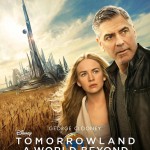This review was originally published at Christianity Today.
–
It the beginning of a Seattle screening of The Polar Express, when the locomotive of the title arrived in cacophonous glory, it frightened a girl—probably four years old—near the front of the theatre. She launched from her seat and fled up the aisle, her flustered mother following along. That dazzling train must have been quite a shock for the little tyke, who was probably accustomed to watching cartoons on the family television.
But when she reached the back door, she could not bring herself to exit. She just wanted to keep her distance until she was sure the train wouldn’t run her down. After the characters in the film settled in for their North Pole voyage, while dancing attendants served them hot chocolate, she escaped her mother’s patient embrace and edged back down the aisle. She stopped right next to me and stood there for most of the movie, oblivious to the fact that she had become part of the spectacle for the rest of us. Her expression reminded me of the boy in Close Encounters of the Third Kind when he sees UFO lights in the front yard—hypnotized, enthralled, and delighted.
Based on an exquisite storybook by Chris Van Allsburg, The Polar Express comes to us from Robert Zemeckis. Zemeckis has transported us to other times (Back to the Future); to exotic and remote destinations (Cast Away); and through groundbreaking advances in animation technology (Who Framed Roger Rabbit?). In this film, he takes us to all three: a simpler time, a far-off and frozen place, and an animated exhibition that glows like a forest of illuminated Christmas trees and roars like … well … like a passing train.
Zemeckis inventively converts the simple storybook into a full-length feature without excessive plotting. The film feels more like a tour than a tale. It’s as if we’re peering into a world that is going on all the time somewhere else. We’re introduced to a young boy just as the first frost of adolescent skepticism settles on his heart. On Christmas Eve, he bah-humbugs himself to bed after his World Book Encyclopedia informs him that the North Pole is “devoid of life.” “He used to stay up all night waiting for Santa. Those days are over,” sighs Mom. “The end of the magic,” agrees Dad.
Just in time, and to the boy’s amazement, a train arrives in front of his house, and he’s invited aboard. Inside, he settles in with other young passengers—an array of similarly wide-eyed children—for a round-trip North Pole voyage. Along the way, they’ll find their virtues and their faith tested in preparation for an encounter with Saint Nick himself.
Teenagers and jaded grownups might scoff at Express’s old-fashioned sentimentality. But small children, and others who can surrender to such simple whimsy without becoming sarcastic, are likely to find themselves spellbound. We haven’t seen a film so perfectly pitched for the very young (and the very young at heart) in years. Recalling classic holiday specials like Rudolph the Red-Nosed Reindeer and Santa Claus Is Coming to Town, The Polar Express is utterly sincere in its storytelling, without a hint of irony or cynicism. (The only painful pop culture reference comes at the end, when we glimpse a singer who resembles a famously flamboyant rock star.)
The highlight is the train itself. Like a massive seething beast, it barrels through obstacles and plummets down panic-inducing spans of track, dizzying viewers like those old Cinerama-style amusement park rides once did. Along the way, we see several memorable sights, like an airborne train ticket doing its impression of the feather from Forrest Gump (also directed by Zemeckis) and a herd of caribou startled by the beacon of the oncoming train. When the train tracks disappear beneath the surface of a frozen lake, even adult viewers will instinctively reach for seatbelts. It’s all too easy to forget we’re watching animation.
The New York Times‘ Dave Kehr calls Express—a film in which “there is no film”—a “turning point” in moviemaking, when really this is just one step further along the trail blazed by Sky Captain and the World of Tomorrow earlier this year. Tom Hanks follows in the footsteps of The Lord of the Rings‘ Andy Serkis, decorated with hundreds of sensors that translate movements and expressions into code, so that he can reappear in this digital wonderland. There, animators alter his appearance so he can appear as a variety of characters, from a father to a train conductor to a wise hobo that resembles Tom Waits. Ever the consummate professional, Hanks shows restraint where others would have hammed it up. But I’m hesitant to praise him too highly—how can I know how extensively his “performance” was digitally altered to suit the director’s vision?
Giving the director and his animators so much control over actors, scenery, and action can crush a film’s vitality, ridding it of the spontaneity of performances, the elements, and light. These artists’ achievement is remarkable, but they’re not as successful with the animated children as they are with landscapes. Where Serkis’s Gollum was able to communicate cleverness, emotion, and even soul, the children on this train remain eerily distant and mechanical.
Other aspects also feel frustratingly routine. The soundtrack is forgettable; its opening theme is cloned from Edward Scissorhands. The inclusion of big holiday showtune, sung by a young doubter who looks like a cross between Haley Joel Osment and Malcolm in the Middle’s Dewey, is an unfortunate stumble. Zemeckis and his co-screenwriter William Broyles, Jr. milk the narrative for typical “Christmas spirit” platitudes until we weary of the word “believe.”
In a few poignant moments, the story reminds us that there isa deeper meaning to Christmas than an army of elves can explain. Santa holds up a jingle bell and says, “This bell is a wonderful symbol of the spirit of Christmas. As am I.” But the implication is that the “spirit of Christmas” equals human kindness.
And Zemeckis’ tale undercuts the symbolic potential of the Express itself. It’s hard not to think of the myriad gospel songs that tell us, “You don’t need no ticket, you just get on board.” Zemeckis steers the train clear of this interpretation, though, insisting on the generic spirituality that diluted his adaptation of Contact. He likes the word “faith,” so long as he doesn’t have to decide who to place faith in. “One thing about trains,” a character assures us. “It doesn’t matter where they’re going. What matters is deciding to get on.” That’s a strange principle to assert in an election year. It does matter which train we climb aboard, which dream we adhere to, and what we choose to believe in.
Having said that, I cannot deny that there’s enough imagination in The Polar Express to merit a recommendation. As the elves of the North Pole led the young visitors to the threshold of Santa’s home, that little four-year-old in the aisle responded to Saint Nick’s magnetism. As if answering an altar call, she broke free of her mother’s grasp and hurried down toward the front of the theatre to reclaim her seat. I hope that this pattern plays out through the rest of her life, as she comes to consider a more amazing spectacle—the true meaning of Christmas.











